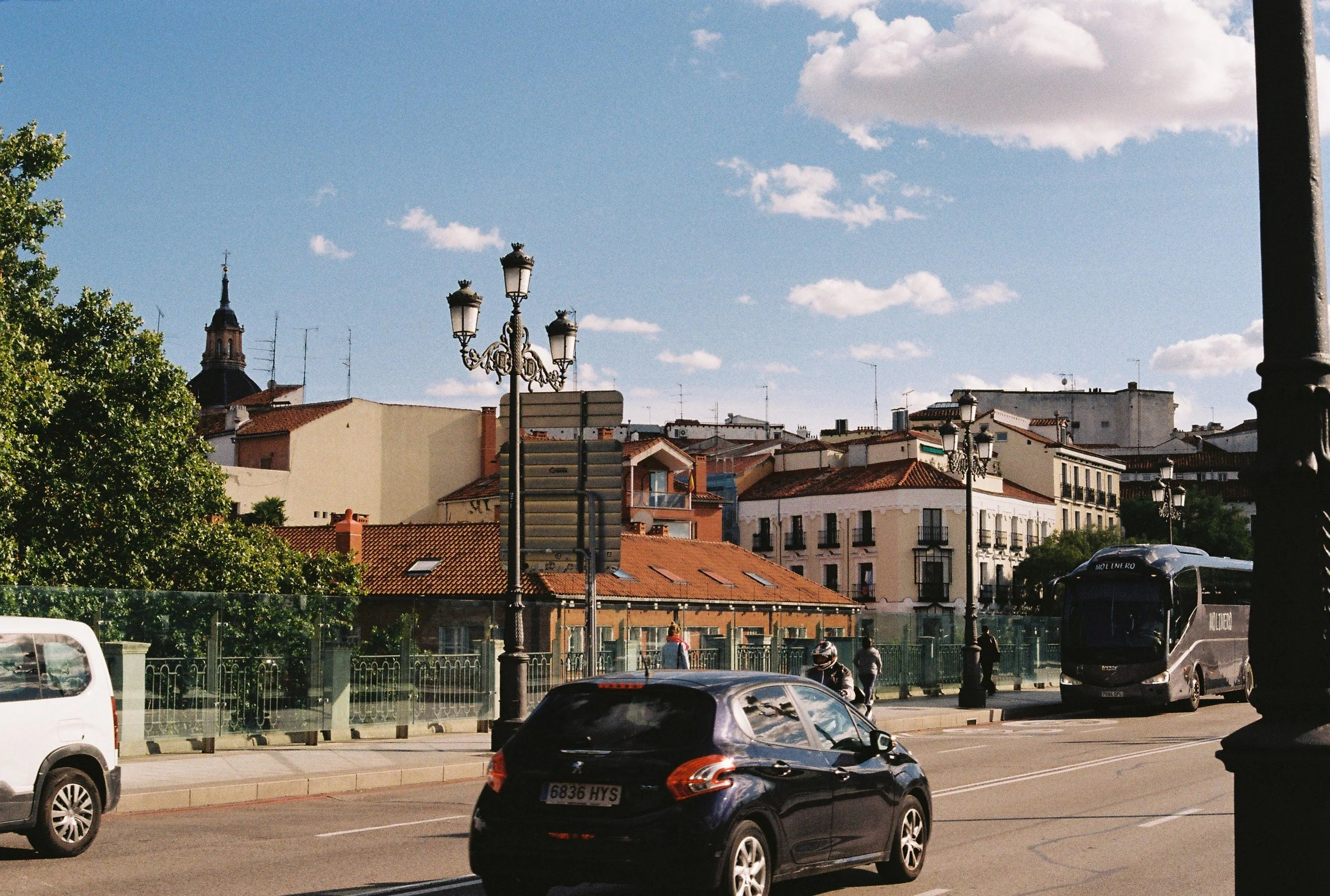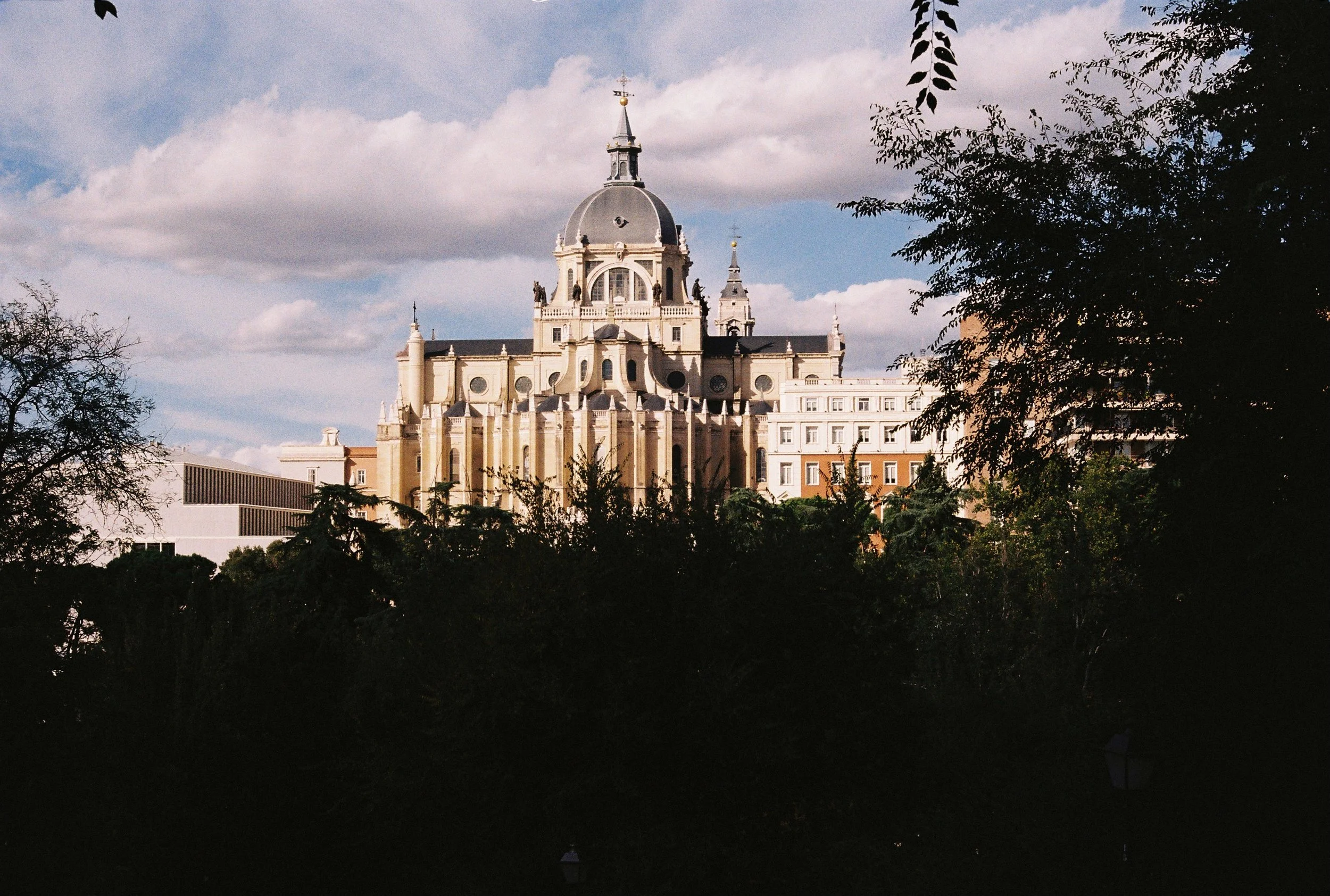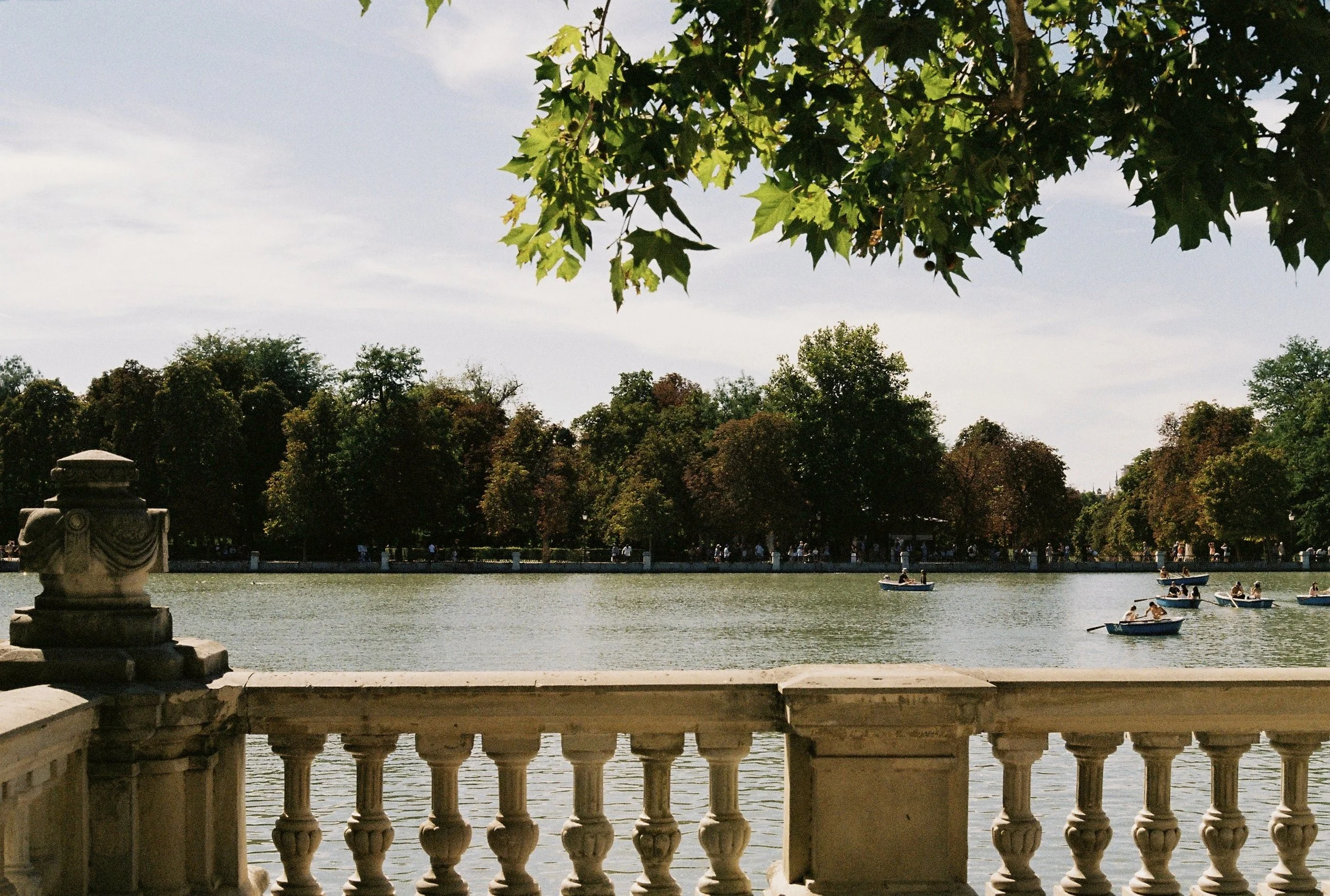A Guide to Practicing Mindful Living in a Busy European City
La Latina, Madrid
I believe that big cities are absolutely incredible pockets of history, culture, art, and opportunity. Living in Madrid, I feel constantly inspired by the environment and people around me, and I never cease to be amazed by the new things I learn in this fast-moving environment.
Not only am I learning about Spanish culture and history in this space, but exposure to immigrants from all over the world has taught me about the cultural values of many different countries and given me a more expansive view of the world. For that, I know that at this point in life, my inspirations, opportunities, and dreams lie in big cities like Madrid.
However, sometimes the sheer speed of Madrid is exhausting to the nervous system. Crowded metros, busy streets, work deadlines, and constant events and distractions can make it hard to feel grounded. Calm can be difficult to find amidst so much noise.
So, how does one approach mindful living in a busy metropolitan city? First, I think it is important to define mindfulness.
What Is Mindfulness?
Mindfulness is the ability to observe and be present in the moment you are existing within. I like to emphasize the observational aspect of this concept because we try to observe our sensations, surroundings, feelings, and thoughts without judgment. By suspending judgment, we can bring more acceptance and curiosity to life. By letting go of the past and future, we can be more present in this moment right now.
In a big city, I like to think about how many other people we are surrounded by all the time — moving through their own rhythms and lives. It is sometimes humbling to step outside yourself and recognize that our problems and worries are quite insignificant compared to the sheer number of others with their own problems and worries.
It helps to remember that, like anything, these problems and worries will pass and change. The worst day of your life so far has passed. And so did the best day of your life so far. That is why presence in this moment matters. You might miss the best day of your life if you are too preoccupied with the worries of tomorrow.
So, how does one establish a mindfulness practice when living a fast-paced city life? As a yoga instructor and someone with an incredibly busy life, I have some tips to share.
Tips for Establishing a Mindfulness Practice in a Fast-Paced City
Views of the palace in Madrid
Creating a Routine That Allows for Pockets of Presence in Your Day
For me, the most important part of mindful living is building healthy habits and a routine to maintain these practices. This is the only sustainable way to keep these habits in the long term.
Slow Mornings and Intentional Evenings
To start and end the day, I try to establish rituals. In the mornings, I rise early, and instead of immediately picking up my phone, I start the morning with some journaling or a gentle yoga practice to wake up my body before work.
On weekends, or days that I don’t work, I still like to maintain this routine, or go to the gym or to the park to practice yoga. For everyone, this ritual may look different. The point is being more intentional about how much information you are flooding your brain with at the start of the day.
The same goes for evenings. Consider how in your life, you could build nighttime habits that help you to unwind and disconnect. This might mean setting boundaries with work after a certain time of night. Instead of staring at a screen, instead, adopt a habit of reading or practicing some calming meditation before sleep.
Mindful Commuting
In big cities, many of us have long commutes to work in the morning, and during this time it's easy enough to unintentionally let the mind wander or simply scroll on the phone on public transport. My commute is an hour on the metro, and what I try to do is make this time into a mindfulness practice as well.
Consider how you could turn walking or time on the metro into a moving meditation. Instead of letting your mind stray from where you are, try to keep your attention in that place. It may help to remove your headphones. If you are walking, try to draw your attention to the sensation of each step, and the sounds and other senses around you.
Another practice I like is taking moments to breathe or scan my body while I’m on the go. For me this means a simple question of: How is the quality of my breath at this moment? Or, How is my body feeling at this moment? Then, reminding myself to slow down my breathing and focus on it to calm my nervous system.
Digital Detoxes
Another important tip is to be mindful of your digital consumption. In a world in which many people rely on their computers for work, it is important to be mindful of your exposure to screens throughout the day, and to set aside times to take breaks from them.
This could mean setting boundaries for yourself for how much screen time you have during the free hours of the day. For me this means setting aside time during the day to put my phone down and choose other options to screens, such as going for walks or spending time with friends in the evenings instead of watching tv or scrolling on my phone.
It's important to mention boundaries with social media as well. Social media, while it was created to make us more connected, often does the opposite — it disconnects us from reality and the present moment. So it is important to have our individual boundaries with it. For me, this means setting time limits on social media apps to be more mindful about the time I’m spending on these apps during the day.
Nature in the City
Retiro Park in Madrid
No matter how busy I am, I try to make time every day to visit some of Madrid’s beautiful parks. Nature is a perfect anchor for mindfulness because the sensory experience it provides draws us into the present moment in a really beautiful way. Time outside can really help to silence the internal chatter of our minds and find a little bit more peace in our every day.
So for this reason, a significant part of mindfulness in a big city is finding time to visit green spaces – parks, gardens, and rivers – on a daily basis or when time allows.
Community and Connection
As a yoga instructor, to me, community is an essential part to wellness. As I have seen in my yoga classes, community can help to support people in their mindful practices. When I lead classes, I love to see the students finding calm and presence together.
Something that certainly encourages mindful routines is having a community space and a time every week that you return to practice. This could be weekly classes at a yoga studio, meetings at a meditation group, or finding a mindful cafe in your city.
You can also turn daily interactions into a mindful practice. Consider, as you are ordering a coffee or speaking with a neighbor, how you can draw your mind and body fully into the space and conversation. These little opportunities for check ins make all the difference.
Tools and Practices for an Urban Mind
When I feel overwhelmed or suffocated by Madrid, I remind myself that I have tools to help me ground in the present moment. My toolkit includes yoga, breathwork, time outside, journaling, cooking, and exercise like running or lifting weights — all mindful practices that help bring my mind back to where I am.
For everyone, this may look different. Mindfulness doesn’t have to require a monetary investment. While certain things, like exercise classes, may cost money, there are plenty of free resources — such as YouTube videos or mindfulness apps — that make yoga and meditation accessible to anyone.
Some mindfulness apps you can try that offer free versions are Insight Timer, Calm, and Headspace.
The Beauty in Balance
Life is all about balance, and also patience. We have to practice patience and self compassion in moments when our minds struggle to stop moving at the speed of our environment and constant distractions.
What I believe is mindfulness in a big city means finding your own way of embracing the energy of the city and making room for stillness. Just like we can’t escape our minds, we also can’t always escape our physical environments. It's not about escaping the city. It's more about meeting it with more presence.


